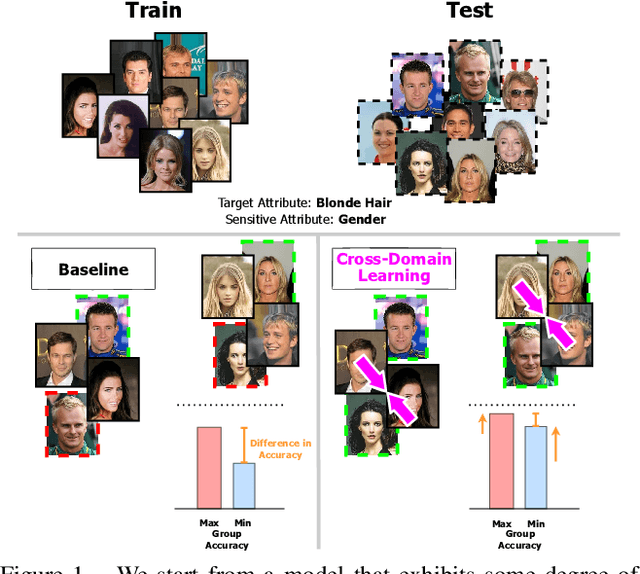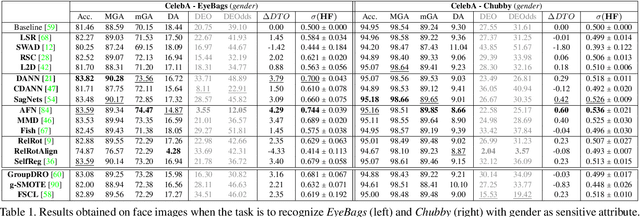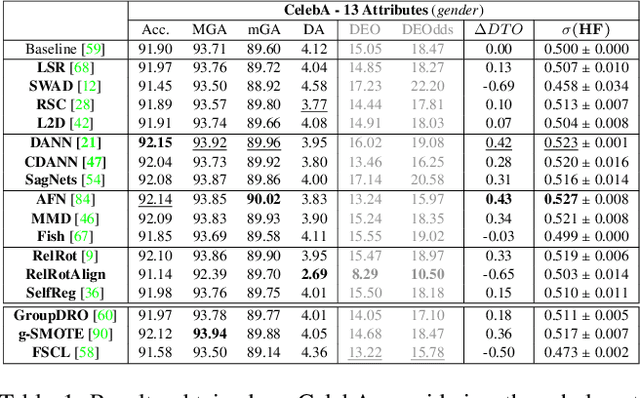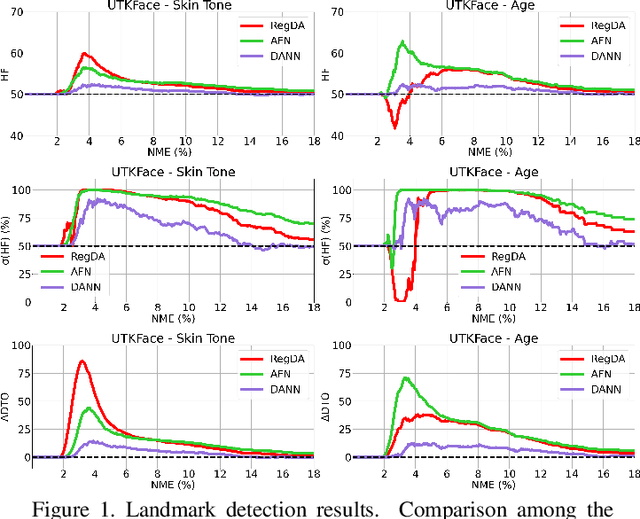Fairness meets Cross-Domain Learning: a new perspective on Models and Metrics
Paper and Code
Mar 25, 2023



Deep learning-based recognition systems are deployed at scale for several real-world applications that inevitably involve our social life. Although being of great support when making complex decisions, they might capture spurious data correlations and leverage sensitive attributes (e.g. age, gender, ethnicity). How to factor out this information while keeping a high prediction performance is a task with still several open questions, many of which are shared with those of the domain adaptation and generalization literature which focuses on avoiding visual domain biases. In this work, we propose an in-depth study of the relationship between cross-domain learning (CD) and model fairness by introducing a benchmark on face and medical images spanning several demographic groups as well as classification and localization tasks. After having highlighted the limits of the current evaluation metrics, we introduce a new Harmonic Fairness (HF) score to assess jointly how fair and accurate every model is with respect to a reference baseline. Our study covers 14 CD approaches alongside three state-of-the-art fairness algorithms and shows how the former can outperform the latter. Overall, our work paves the way for a more systematic analysis of fairness problems in computer vision. Code available at: https://github.com/iurada/fairness_crossdomain
 Add to Chrome
Add to Chrome Add to Firefox
Add to Firefox Add to Edge
Add to Edge